630 young people included in the club for digital education
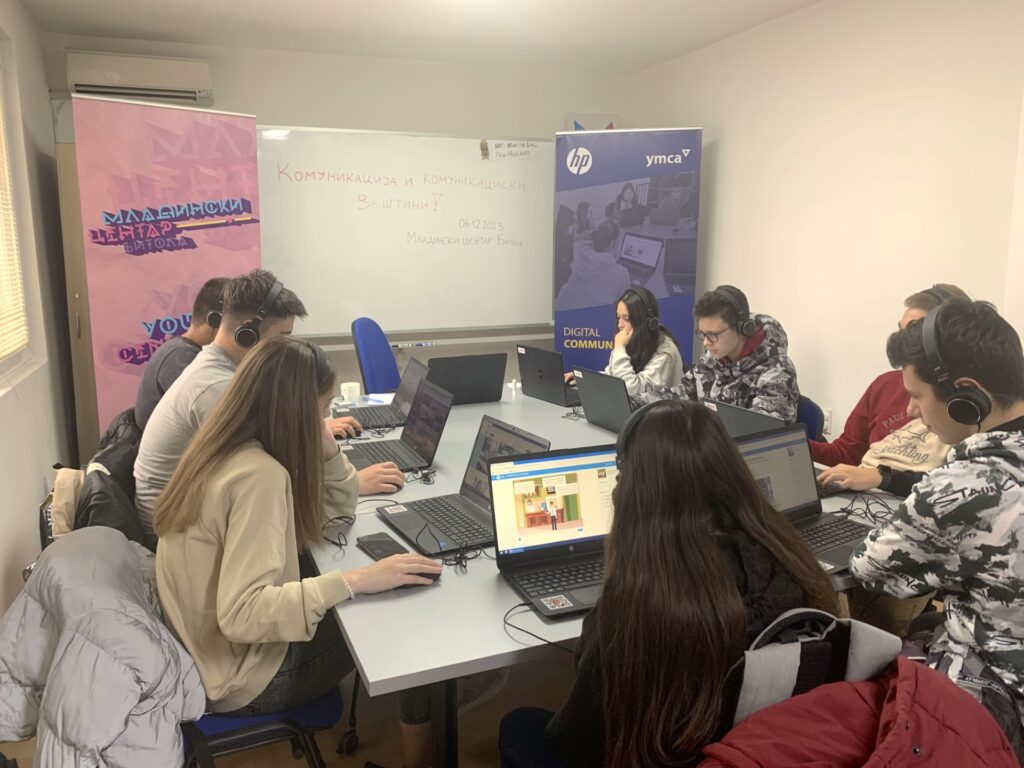
Digital literacy, a skill that is now as important as reading and writing, is the ability of citizens to use computers effectively in their workplaces and in their daily lives. The ability to use devices for games and entertainment does not define digital literacy among young people. Digital literacy is much more than embracing new technologies, using social media, or creating and tracking photo and video content. It is the ability to use digital technologies to create, select and connect information from multiple sources, in multiple formats, and use them to improve effectiveness in any area – learning, work, etc. On 22.03.2023 we started with the first term for courses and so far we have 110 terms with a total of 630 participants (of which 50% are female and 50% are male), completed about 30 different courses from the categories of marketing, communications, finance and startup /innovations. After 9 months of delivering activities related to YMCA’s digital education courses in collaboration with HP, we would like to share with you some of the findings from the evaluations completed by the participants. We are happy with the feedback we receive from the participants who describe the courses as easy to follow, interesting, interactive, they would recommend them to their friends and almost all of them want to come again on a new topic. In the last several years across our country have been created a dozen of a youth clubs. This has been one of the most attended program! We are very happy with the impact we have created. In addition, are the answers of the participants about the difficulty of the course and their future involvement in it. In addition, we share some of the most frequent comments that were repeatedly shared regarding what they liked about the courses: Read here impressions from some of the participants included in this program
Mental Health. Deep dive on a grassroots level among young people and adults
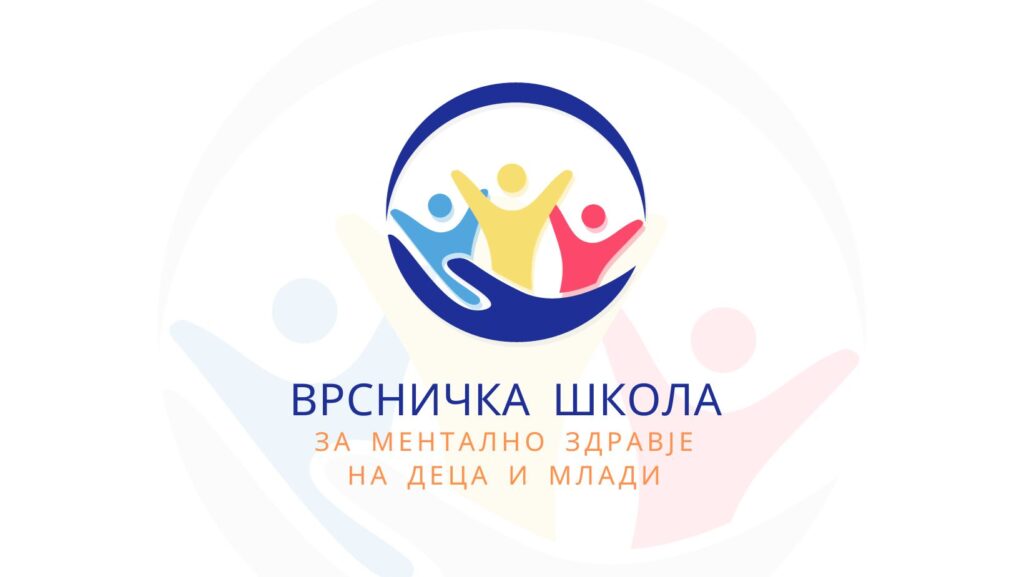
Through peer-to-peer education in working with the youth and initiating support groups in working with adults, this project aims to install proven methods of work when facing challenging issues and/or topics. Peer-to-peer education plays a pivotal role in empowering youth and fostering community development, a mission that aligns seamlessly with our dedication at the YMCA and youth work. The dynamic exchange of ideas among youth not only cultivates a sense of ownership and responsibility among the young people but also encourages them actively to engage with their peers. In a formal context, this method of education can be a powerful tool for building leadership skills and instilling a sense of civic duty. When youth learn from their peers, they can connect on a deeper level, as they often share similar life experiences, challenges, and aspirations. What to expect: In the week ahead we are starting with an open call for peer educators. The workshops will be based on the principles of non-formal education and will take place in the Youth Center in Bitola in the period during the first school semester. The peer educators will learn more and discuss with their peers mental health covering topics such as: anxiety and depression, risky behavior, which means – violent behavior/peer violence, self-harm and substance abuse, building resilience and self-confidence among children and young people and the digital representation of the same topics related to the behavior of young people on social networks. The project has a follow-up phase in the second school semester where these peer educators will implement peer education workshops in their schools and faculties and share the gained knowledge with the end users/their peers in a non-formal setting. The second aspect is initiating the model of support groups in our city to create a more inclusive and supportive community in Bitola as an approach that has provided many benefits in countries across the world. Support groups play a crucial role in offering a lifeline to individuals facing various challenges. For individuals facing disabilities or some life difficulties, support groups foster a sense of belonging and reduce feelings of isolation and provide a vital source of emotional and practical assistance. They offer a safe and understanding environment where members can openly discuss their challenges, share experiences, and exchange coping strategies. These gatherings provide a safe space for individuals to share their struggles, aspirations, and personal stories to empower participants to face challenges head-on and build a strong support network that lasts a lifetime. Moreover, support groups for people with disabilities serve as a platform for advocacy and awareness. These gatherings amplify the voices of those who often face societal barriers and discrimination. What to expect: In the coming period two support groups will be established, one for the challenges facing single-parent families, and another for families of persons with disabilities who have a child or young person in education. In particular, these two vulnerable categories of people are at greater risk of mental health disorders and suffer more pressure from their fellow citizens and peers due to insufficient awareness of the problems they face (reduced social status due to poverty, stigmatization and avoidance, insufficient awareness). Due to that increased social pressure (which regularly finds support in the stereotypes and prejudices of the local community) and discriminatory behavior (not only between peers but also between older people, in the services, etc.), the probability of the problems they are already facing increases. These groups will involve the inclusion of parents (of the affected two categories of children) to share their experiences among themselves, with the peer educators and the professional services in schools. In addition, parents of peer educators and educated assistants will be invited, as well as other parents who will become familiar with our project through the Parents’ Councils in schools and will be invited to attend these groups. To implement this we have partnered with Poraka Nova and Amos who have experience in this impactful approach. These groups will meet and work at the Poraka Nova premises. An additional added value of influence from support groups both in terms of the project and for the city of Bitola will be the connection of the work of these groups with some of the services that are already offered at the level of the Municipality of Bitola for the prevention of social problems – those of single and one-parent families, as well as those related to the families of persons with disabilities. However, our project aims to call on civil society organizations to take a greater part in the future as well, through the Youth Center, which will enable educators of this type to network and cooperate, because this will strengthen their work and add to their recognition in the public. The project „Peer school for children and youth mental health“ of the Youth Association YMCA Bitola has been implemented in the frames of the regional program for local democracy in Western Balkans2 Reload2, financed by the European Union (EU), implemented by United Nations Development Program (UNDP). The project is co-financed by the Municipality of Bitola. The project has been implemented by the YMCA in cooperation with Poraka Nova and Center fo Human Rights Amos. Read here to learn more about this project
Тraining in Plovdiv on NLP: Unlocking the Potential of the Mind
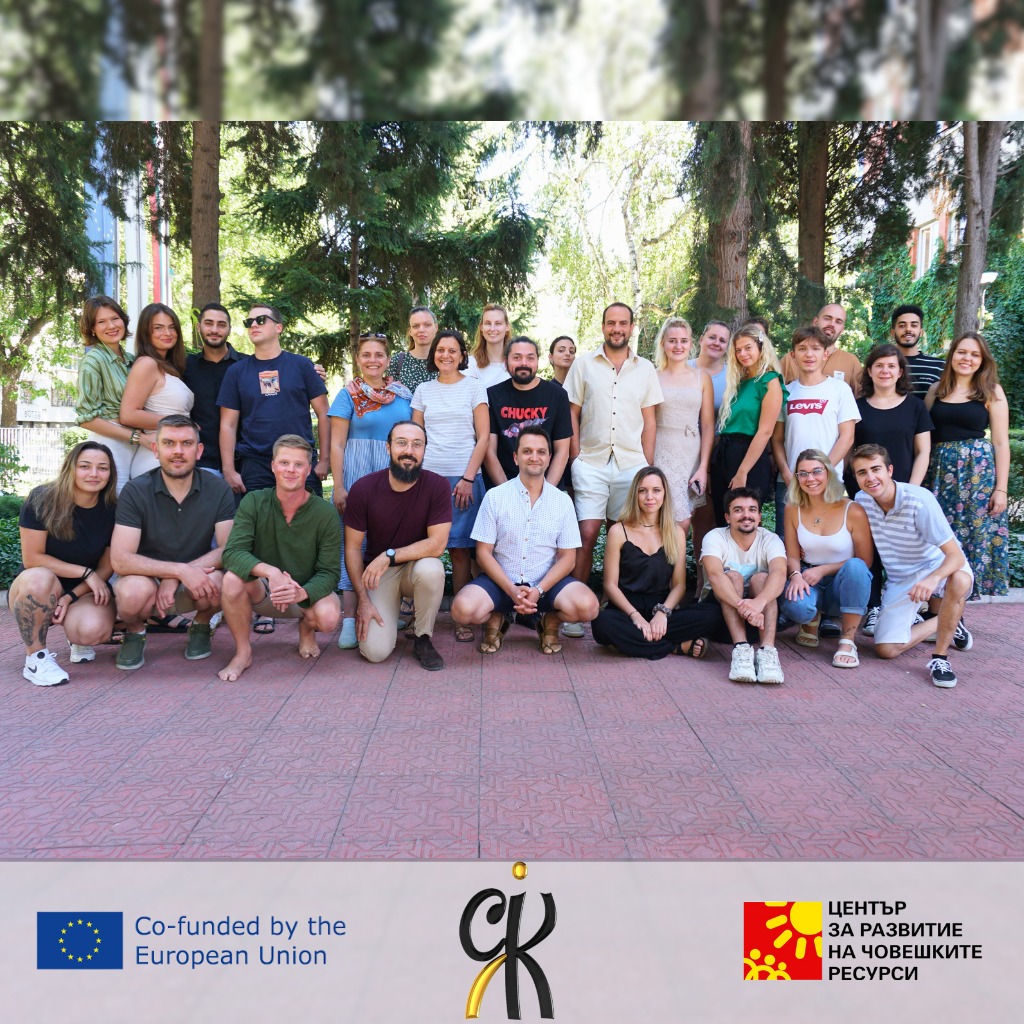
By Jove Krsteski It is known that Neuro-Linguistic Programming (NLP) is a methodology that investigates the dynamic relationship between language, neurological processes, and behavioral patterns. It is a versatile approach that offers understanding of human behavior, communication, and personal development and also practical techniques for enhancing personal growth, improving communication, and bringing positive change by understanding connections between thought patterns, language use, and the subjective experience of the person. From 31 August to 10 September 2023 in PLovdiv, Bulgaria was held a training course named “NLP – New Language Practice” that was based on Neuro-Linguistic Programming exercises. It was organized by Kibela Association in cooperation with Smokinya Foundation and Human Resources Development Center from Bulgaria, and was co-funded by the European Union. In this training there were participants from Bulgaria, Spain, Serbia, Poland, Macedonia, Latvia, Italy, Hungary, Greece, France, Estonia and Czechia. If we recapitulate what we got from this training, we can say that much of the basics in the NLP theory practice was broadly elaborated, and we had a lot more time to work with the practical exercises that were given to us. Speaking more concretely, in the theoretical part, we went through the basic meta-model of NLP (as explained by Bandler and Grinder, 1975) and then we elaborated it more with the “third generation model” of interlinking between physiological cues, language and cognitive characteristics. We had a chance to briefly familiarize ourselves with the 5 “R” in a setting (the Resources we have and use as an input in the ‘situation’, then the Roles that are played, the Relationships that are happening, the Rules that need to be followed in order this to be a proper ‘situation’ and at the end, as output the Results). In this manner, certain roles we need to know are the ones that are part of the learning trio of ABC, where “A” is talking/sharing, “B” is learning/listening and “C” is observing/observer. Once a ‘setting’ is established, the main philosophy of everything is that whatever we observe, our interpretation of it is something different (this is also elaborated as the ‘event’ vs. ‘story’ difference in any given situation). This was brought to us alongside the main NLP idea that the “map is not the territory”. The most interesting input here was the fact that “the most flexible part of any system is usually the part that controls it”. Calibration of our input/output was also mentioned, calibration of what we bring to a situation as well as what we take, or recieve. This was recapitulated after a few days as points of observation that the theory gives (see flipchart). The representational systems of the personality were also elaborated (the Visual, Auditory, Kinestetic were mentioned in “NLP Volume 1” from Dilts, Binder, Grinder and DeLoiter from 1980, but also the Digital was included later in the training.) The eye accessing cues viewpoint was also mentioned. From the more psychological standpoint was the schema presented of how unconscious/ unconscious can be seen in relation to what competency and incompetence are, and alongside with this, the “presuppositions” were elaborated regarding the information that is implicit in a communication that is happening in a setting. Next part of the training was exploration of what the proper attitude of a coach should be, as well as the competences he has to have (see flipcharts), around which a discussion was held. After that, the training offered us a lot of space to practice. We formed trios and had a chance to see and later on experiment with several practical tools. Several conversational techniques were offered for practice (backtracking, lazy coach, reflection on feeling, shooting from the hip) that are used during dialog and help facilitate certain objectivity. Then, we familiarised ourselves with the “hoponopono technique”. Also, we had a specific instructor that gave the opportunity for us to practice our voice, tone and verbal expressions. With this, the whole VAK representation in the participants was satisfied, since we used a lot of schematics in flipcharts for explanation – for the Visuals, this with voice training – for Auditory, and the whole set of dedicated space and time for practice was – for the Kinestetics/ Digital ones. And of course, the more typical practicalities for NLP were also present; the rapport, the anchoring and the reframing approaches. It was also explained how we can use a timeline as a technique for elaborating on personal issues, and also one of the participants offered technique for working with our personal limiting beliefs. Neuro-Linguistic Programming offers a treasure trove of practices and techniques for enhancing communication, managing emotions, and transforming one’s perspective on life. Many of the NLP practices empower individuals to connect more deeply with others, take charge of their emotional responses, and break free from limiting beliefs. By incorporating these practices into their lives, individuals can embark on a journey of personal growth, self-discovery, and improved relationships, ultimately unleashing their full potential. This is true and useful in a psycho-therapeutic context, but also in the field of youthwork. Many of the techniques can be modified to serve as tools for empowering youth workers. It certainly helped me to learn more and become more aware of the usefulness of the conversational techniques and the benefit they have regarding the mutual working context between youthworkers and young people, especially if we have in mind that young age is the age of personal development. All techniques that bring more clarification INTO CONVERSATION are of benefit. But also, this training brought together so many participants from different ages and life experiences, a mix that was so beneficial and added more to the group learning experience we all had. I felt satisfied at the end and enjoyed this learning experience, which helped me to see how useful all of these techniques can be for working with young people.
Participants’ Impressions from the Camp SDG#13
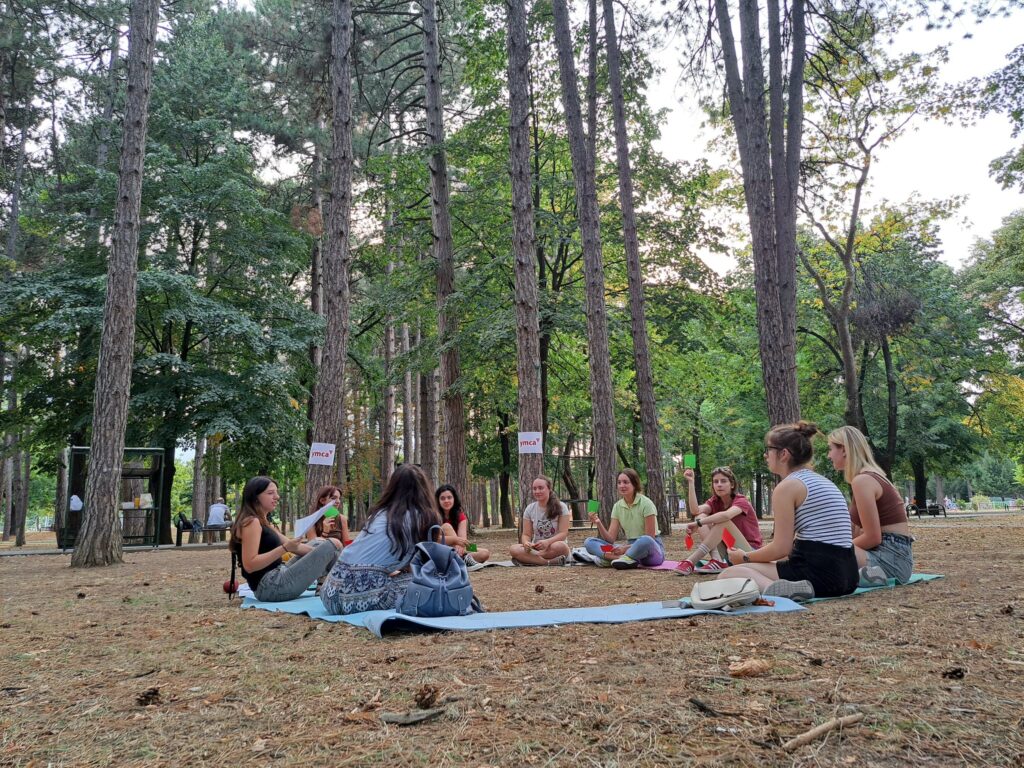
Mia We learned new things about the environment and undoubtedly became more motivated to preserve it, at least on a local level. I am sure that I will attend this type of event again. I find the topic vast and there is quite a lot to discuss, and the fact that I can do the same with people with a similar mindset to mine appeals to me even more. Anna The word itself Eco(logy) attracts me a lot and I think that we are not responsible enough for our environment. I wish for that to change and I am aware that the starting point for that is always myself. We should not tell others what to do, but let them see what we are doing and thus be motivated. Simona Eco camp directly involved us in the organization of our open day where various games were played and lots of useful information was learned about bicycles and cyclists, as well as protecting our environment by using bicycles. For several days we learned through games, and on the last day we passed it on to the children as well as to the adults who visited us in the city park. The game turned into a beautiful view of the event “Bitola on a Wheel” with which we made a big circle around our city with bicycles accompanied by all the fans of the “wheel”. Sarah I learned many things, first, the Sustainable Development Goals, which I honestly had not paid much attention to. I would single out the joint educational games as the most fun and would apply them further in a professional or private relationship. Angela I was most impressed by the last day where we successfully organized an event for children accompanied by interesting games related to ecology, nature conservation, and cycling. All this, in addition to fun and smiles on the children’s faces, provided them with the opportunity to learn interesting facts related to ecology. Finally, I can safely say that I learned a lot and this camp encouraged me to think more deeply about the preservation of our planet. Read here to learn more about this project
The story of Camp SDG#13
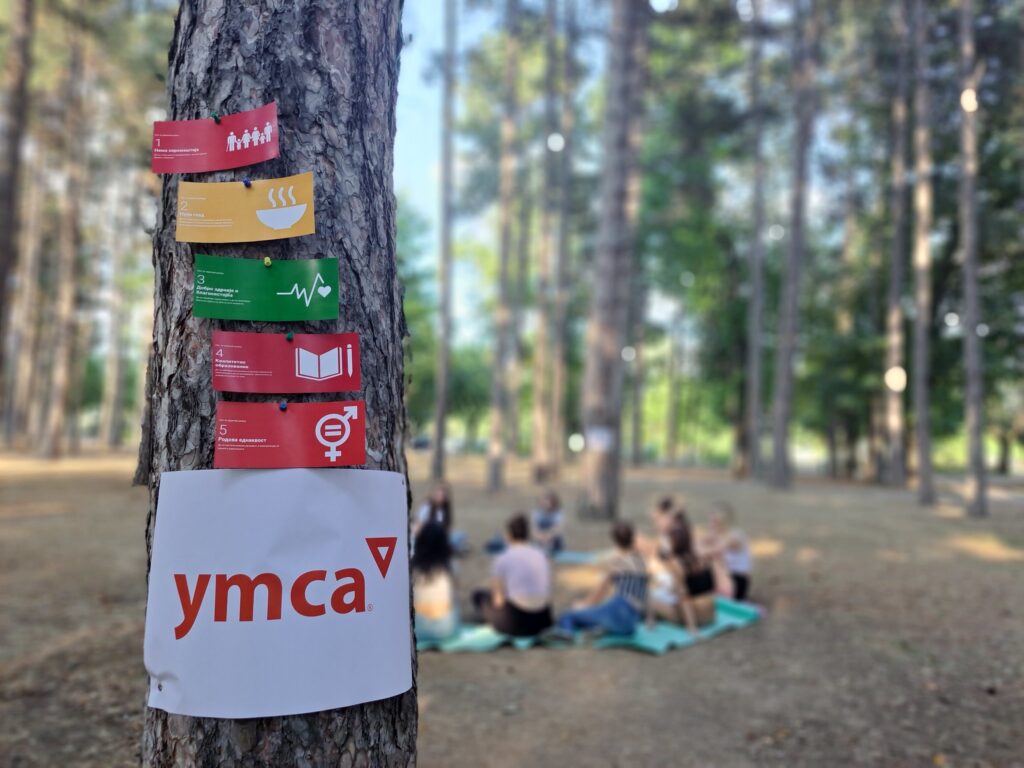
From August 21 to 26 this year, as part of the Climate change leaders/Youth-led solutions project, we realized the SDG13 daily eco camp, supported by YMCA USA, which was attended by eleven 16-23 aged young enthusiasts from Bitola, interested in the environment, sustainable development and eco-activism. The first three days of the camp were for providing inputs in the topic, learning and deepening knowledge about sustainable development goals with an emphasis on the 13th goal for climate change. The first day of the camp took place in the Youth Center in Bitola, while the next two days continued outdoors in the City Park which was unanimously chosen by all participants as a suitable place for learning about the environment through outdoor education. The activities each day lasted 3-4 hours with a combination of workshops and exercises. We introduced the participants to the mission of the YMCA, they got to know each other, had the opportunity tо present independently all 17 goals of sustainable development and to learn about the circular economy through the HP Life courses. They were presented with examples of eco-activism, both in our country and from many places around the world, as well as the development of current environmental problems and proposing solutions for them. Tips for preserving nature through games and interesting outdoor activities were also discussed and suggested. The third day was specifically dedicated to air pollution, causes of pollution, steps taken to reduce it and what we as individuals can contribute to cleaner air. In addition to others, the topic of modes of transportation, their efficiency, economy and availability was raised here. Each working day ended with an evaluation of what was learned from the current day. During the event, the European Mobility Week was announced and the possible activities that we as participants of this eco camp would take to share some of the knowledge with other children and youth in an interactive and fun way. It was decided that on the last day of the eco camp, a final event will be held, fully planned and implemented by all participants with their ideas and suggestions, of course with the full support of the YMCA team. The participants were divided into 3 teams, and the following day a meeting was held with each of the coordination teams where 15 ideas for outdoor activities were selected to announce and support Mobility Week. On 26.08.2023 under the motto Learn. Share. Get involved. Get active the open event started in the City Park in Bitola with pre-prepared games for children, Jenga, slackline, a workshop for making pin badges, an improvised training ground for cyclists, educational games and the like. The goal was greater awareness of cycling, healthy lifestyle and environmental protection. The event was attended by a large number of young people from our city and we introduced many surprises for the best visitors – cyclists. We are happy that at the event we cooperated with corporate partner Alpsko, as a great supporter of organizations that support a healthy lifestyle. After two hours of activities with the children, we ended the event with a bicycle tour through the streets of Bitola with cyclists of all ages from our city, as a call for the installation of cycling lanes in order to make it easier and safer for the cyclists who are more and more numerous in our city.
Peer education for primary and high school students
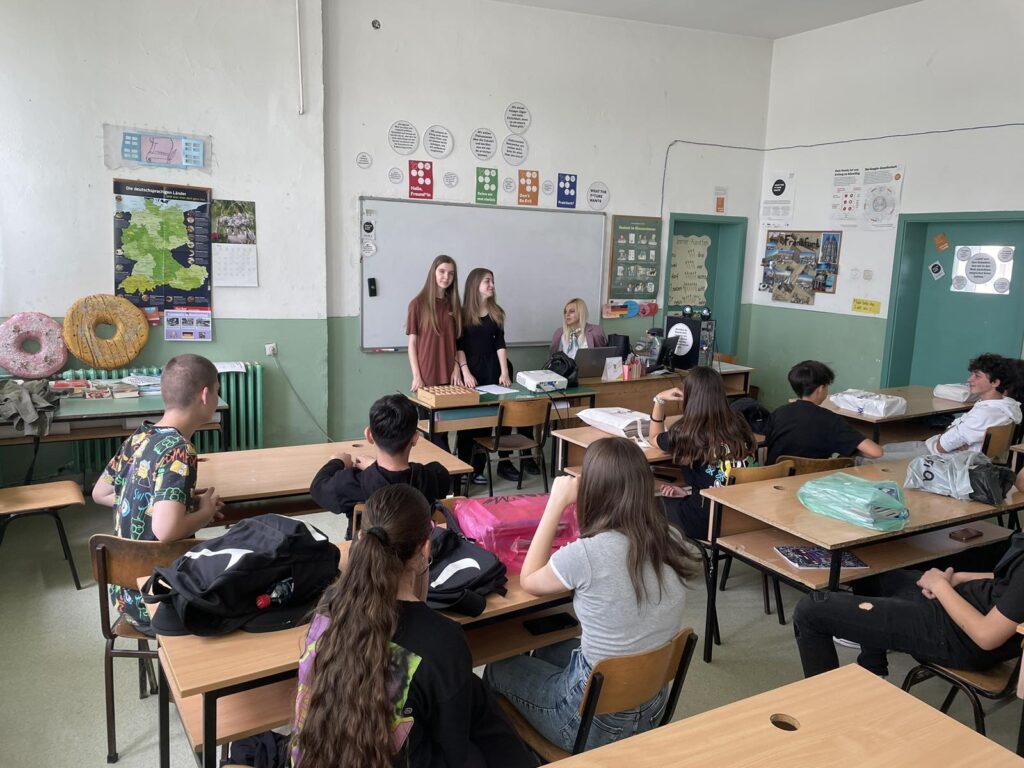
The activities in the project “Stop discrimination of persons with disabilities” entered the next phase in May and June with the application of the acquired knowledge and the implementation of peer education in the involved primary and secondary schools in Bitola. Trained peer educators gave all planned presentations to their peers in the schools where they study. Anastasia held her presentation at Kliment Ohridski school, Leona and Christian at Elpida Karamandi school, and Marta and Michaela at Kole Kaninski school, as far as elementary schools are concerned. While for the secondary schools, Brankica and Angela conducted their peer educations at Taki Daskalo vocational school, and Ivan and Leona at Jovan Kalauzi medical school. The focus of all presentations was on discrimination and intolerance as behavior that creates discomfort in communication and understanding of other people. All the exercises and activities that the students shared with their peers were aimed at the listeners putting themselves in the other’s shoes and feeling what it’s like to have some kind of limitation in everyday life. With that, the peer educators enabled the classmates to have a practical experience of what it looks like when you are disabled in something and thus encourage awareness of the diversity that everyone has. In this way, a better understanding of the everyday life of students and other persons with disabilities was enabled. Then there were conversations and discussions about the impressions of the exercises and activities. The total number of students who were present at these presentations was about 150 students in 6 classes. This is the end of another phase of this project which will continue with sharing of the experiences that the peer educators had during their training, as well as the sharing of a small survey related to these topics. With the project “Stop the Discrimination of People with Disabilities”, we raise awareness of the existence of discrimination in all spheres of life in our society and indicate the regulations that help to reduce it in the future. The project is supported through small grants from the anti-discrimination program of the Macedonian Center for International Cooperation – MCMS, financed by the European Union and implemented by Poraka Nova, in cooperation with YMCA. The peer-to-peer is a methodology that as an organization we will continue to work on in the next period in several topics of interest to young people such as mental health, and personal, social, and career development of children and young people for which we have already secured support, but more for that in some of the following posts on our website. Read here to learn more about previous project activities
Monitoring Findings: Bitola Cycling City
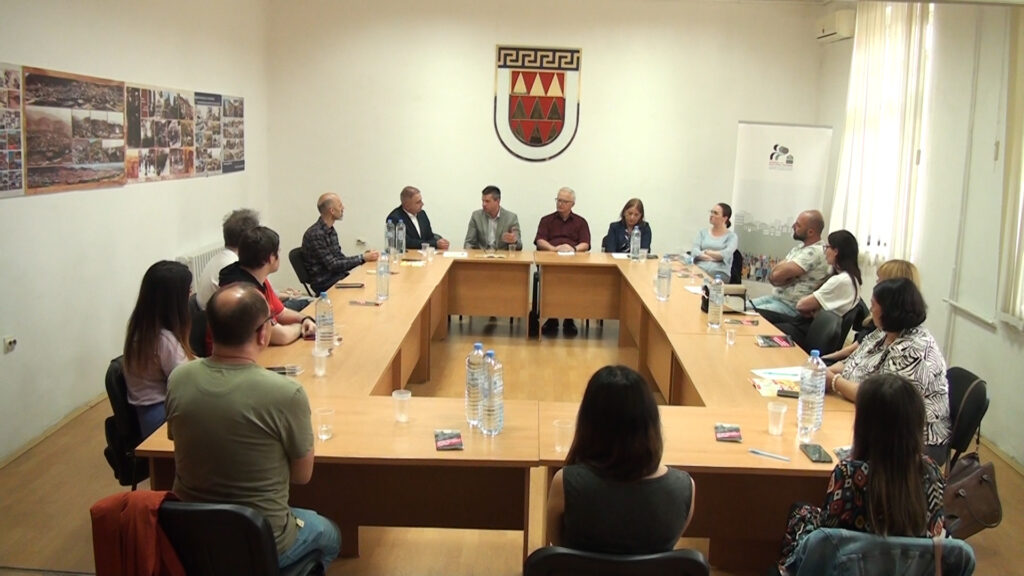
In the period February-June we implement the project for monitoring pre-election promises. Following our activities with the aim of encouraging green solutions and a sustainable community, we follow the topic of building bicycle infrastructure. Attached are the activities by month: February: Survey of pre-election promisesThe survey of pre-election promises was across the online airwaves following past media releases, and politicians’ statements and offered pre-election programs. Our main challenge was that the pre-election programs were withdrawn from the internet space, and in order to find relevant material, we contacted members of the parties who are in the city council. Regarding the pre-election programs, only that of the independent group Poinaku is publicly available, and in consultation with the parties, we received the programs of the two largest coalition blocs led by VMRO-DPMNE and SDSM. March: Survey of municipal documentsThe inclusion of the topic from the pre-election promise in existing official documents of the Municipality of Bitola (programs, strategies, etc.) was perceived. The survey was conducted electronically on official municipal channels such as the municipality’s website and social media posts. Web portals were also searched that conveyed certain information about the requested data on the subject of pre-election promises. A request for access to public information was also submitted. In addition to the past, existing documents for currently planned activities in 2023 were also investigated. April: Meetings with municipal officials and councillorsMeetings and discussions were held with key municipal officials and employees in the Municipality of Bitola related to the topic of the pre-election promise. In particular, meetings were held with the Secretary of the Municipality, the Head of Local Economic Development, who is also responsible for the implementation of the bicycle path project, and a conversation with the Director of the Public Company for Urban Planning. May: Survey and public info session for the cycling lanes projectSurvey on the safety and use of the bicycle as a means of transportation and comparison of the findings of similar surveys that we did in 2015 and 2018. In order to share the attitude of the bicycle community, we have taken part at the Commission for Local Economic Development. A public info session was also held with the inclusion of all relevant stakeholders for the bicycle paths project in order to bring the latest information about the project to the public. June: Dissemination of results with the publicSharing the results with the public is through several focused announcements on social media, appearance on a regional television, live on a national television, a TV coverage from the public info session, thematic podcast, high school podcast, sharing infographics, sharing a printed brochure, and the plan is also to make cycling motivational stickers. Findings / Results*: Read here to learn more about this project *The links to all findings and documents are included only in the Macedonian version since they are available only in Macedonian language.
Opening of a Youth Center in Bitola
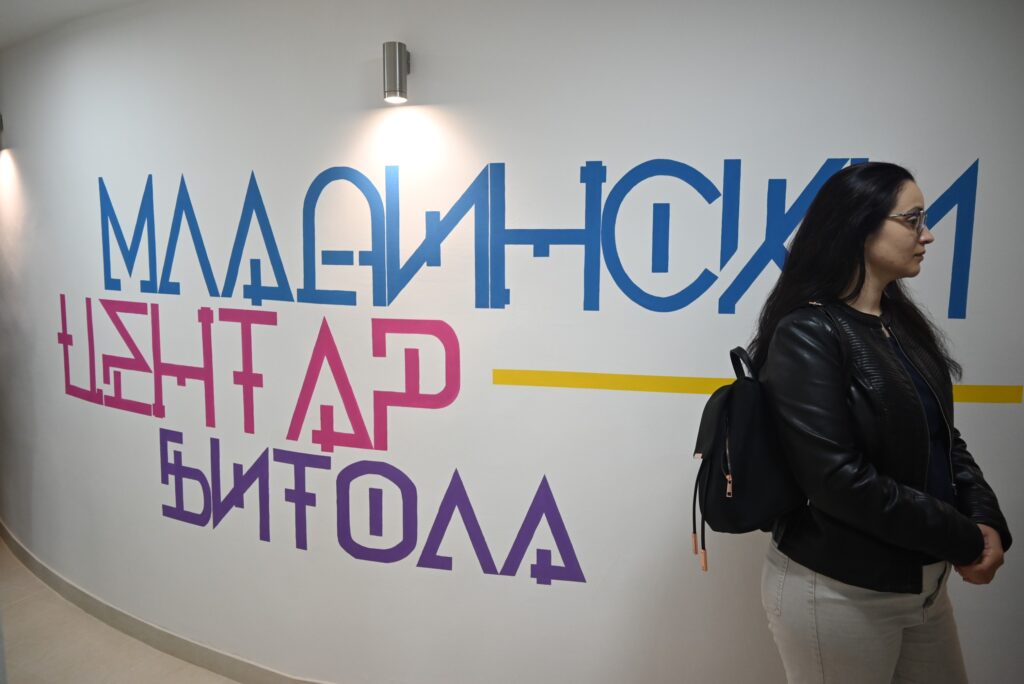
We are pleased to announce the grand opening of our brand new Youth Center, a vibrant, creative, educational space designed to nurture and empower the young minds of our community. This occasion marks a significant achievement in our commitment to provide an environment for our youth to explore their interests, connect with others and unlock their full potential. The youth center is an encouraging environment, a place where there will be realized many opportunities and potential. It is a place where young people can gather, learn and grow in an atmosphere of creativity, support, and inclusiveness. Our goal is to foster an environment that inspires and uplifts, fostering a sense of belonging in every young person who walks through our doors. Within these walls, our youth will discover a myriad of opportunities to explore their interests, expand their horizons, and develop valuable skills. From workshops, seminars to exciting recreational activities and leadership, and environmental programs, we have carefully curated a diverse range of programs to cater to our young community members’ diverse interests and talents. Whether it’s art, music, sports, or entrepreneurship, we aim to provide space for every passion to flourish. Additionally, the Youth Center will serve as a hub for making and nurturing meaningful connections and building lasting friendships. We recognize the power of the community and the young people in our community. From joint projects and group activities to volunteering opportunities and community initiatives, our aim is to encourage a sense of social responsibility and instil in young people a sense of belonging to this community. Behind the work of our Youth Center is a team of dedicated youth workers who are committed to guiding and supporting our youth on their journey toward self-discovery and progress. These knowledge-carrying youth workers are excited to share it, inspire new perspectives, and foster personal growth in every young person they meet. We express our heartfelt gratitude to all the individuals, supporters, and partners (Municipality of Bitola, YMCA.mk Youth Cultural Center, Sfera, Union for Youth Work, Mladi Hub) who have committed to making this goal a reality. Their support and commitment to investing in our youth have been key to bringing this Youth Center to life. We are grateful for their shared vision for a brighter future for our community, where every young person’s potential is realized and celebrated. Our goal is to support the personal and social development of young people in Bitola and their active involvement in the life of the community through the following activities: – Sports and recreational activities– Activities to mark significant holidays and international dates– Art workshops (drawing, music)– Workshops/discussions to improve your knowledge about yourself with advice from experts in the field of career counselling, psychologists, or professors from vocational schools, as well as for the development of entrepreneurship– Workshops with advice, education, and actions for the preservation of ecological life in Bitola– Volunteer actions, motivated to organize volunteering campaigns in Bitola.– Educational workshops for different areas – Other activities that include socializing and socializing.
Workshops for peer educators and school professionals – Project: Stop Discrimination

During our activities so far, four workshops have been held for students, one for the educational assistants in the schools involved in the project and one for the professional psychological-pedagogical services. The four workshops were attended by 12 students who were ready to take on the role of peer educators on the topic of non-discrimination of persons with disabilities. The topics covered at the first workshop were general and addressed general human rights and children’s rights in particular. The second workshop was about the concept of discrimination and the habits that cause this phenomenon, such as prejudices and stereotypes. At the end, they talked about the way discrimination can be overcome and that is through tolerance. At the third workshop the topics of disability and discrimination of people with disabilities were discussed and the students also prepared their initial draft ideas on how they will perform peer education for their classmates. In the last workshop we talked about the types of violence and the protection against discrimination. Also, the ideas for the students’ presentations were deepened with the help of the instructors giving the students the opportunity and creative freedom to express the material they had prepared to the best of their ability. With that the small cycle of trainings intended for the students was closed and it was followed by Workshop intended for educational assistants who work in schools with people with disabilities. Considering the current reform in our educational system where greater inclusion of these persons is introduced in the educational process, this training has met with great interest among educational assistants. Many questions were raised and the assistants took the opportunity to express their views, opinions and insights about the various processes that take place in education, especially in the part of their work engagement in schools. At the workshop, the same topics were discussed with them as with the students, but in a more condensed form and at a higher level. The last of the planned six workshops was held this week. It was intended for the professional services of schools in Bitola and covered the topics of legal regulations related to protection against discrimination of persons with disabilities. Professional services had the opportunity to familiarize themselves with these legal regulations through a presentation held for them by a representative from the Commission for Protection and Prevention of Discrimination (CPPD). After pointing out the legal decrees, a case study was also shown where the CPPD acted on a case reported to them with which the professional services had the opportunity to see what the procedures look like when reporting discrimination against a person with disabilities and what are the institutions and procedures that should be followed in the entire procedure. With that the school services had the opportunity to familiarize themselves with the latest and most recent changes in the legal provisions and procedures related to this topic. With the project “Stop the Discrimination of People with Disabilities”, we raise awareness of the existence of discrimination in all spheres of life in our society and indicate the regulations that help to reduce it in the future. The project “Stop discrimination of persons with disabilities” is supported through small grants from the anti-discrimination program of the Macedonian Center for International Cooperation – MCMS, financed by the European Union and implemented by Poraka Nova, in cooperation with YMCA. Read here to learn more about this project
Overview of HP & YMCA digital education program and opportunities 2023
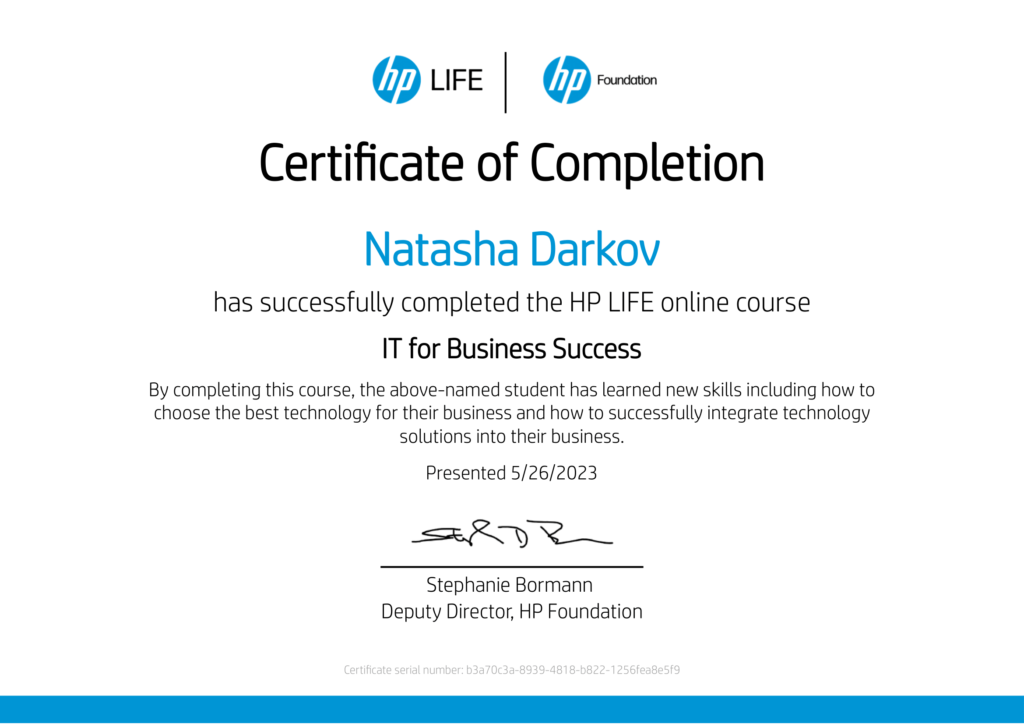
The goal of the collaboration between HP and YMCA is to use technology in a good way, to achieve digital inclusion by providing access to technology and digital education to everyone in an easy and interesting way. The courses are made by experts in their fields from the HP company and conducted by YMCA youth workers. We find these courses useful for adding value to the informatics curriculum in schools as well as for practical use in our everyday lives. The courses are short in duration from 20 to 50 minutes, in five topics with several courses in each of them. They are easy, interactive, and filled with short videos, dialogues, pictures and quizzes. The courses offered are in the following topics: communications, finance, operations, marketing and startups/innovations. Each course contains 5 steps: a short course description, business concept, technology skills, survey and additional resources on the topic. The pace of studying a course is according to the desire of the participant. Once you have completed all 5 steps (100%) the course is successfully completed. For each completed course you receive an electronic certificate in your e-mail with specified information about the specific course, what was learned in it, the date of study and the signature of the Deputy Director of the HP Foundation. Each course is taught individually at the YMCA in the Youth Center with full technical equipment from our side. Alternatively, there is the possibility of conducting the courses in the premises of the educational institutions in Bitola. The participant has no obligation to bring equipment or to have special prior knowledge of a certain topic or conditions for studying a certain number of courses. The courses have open dates where EVERYONE can SIGN UP, and reserved dates are offered for groups/institutions that work with young people. Groups are limited up to 10 participants per course. The courses are: completely free for anyone with a functional email, intermediate knowledge of the English language and a desire to learn and upgrade their knowledge. The courses are held in the premises of the Youth Center – Bitola, on Krushevo Street 5 in the local community of Veljko Vlahovic. Read here to learn more about this project